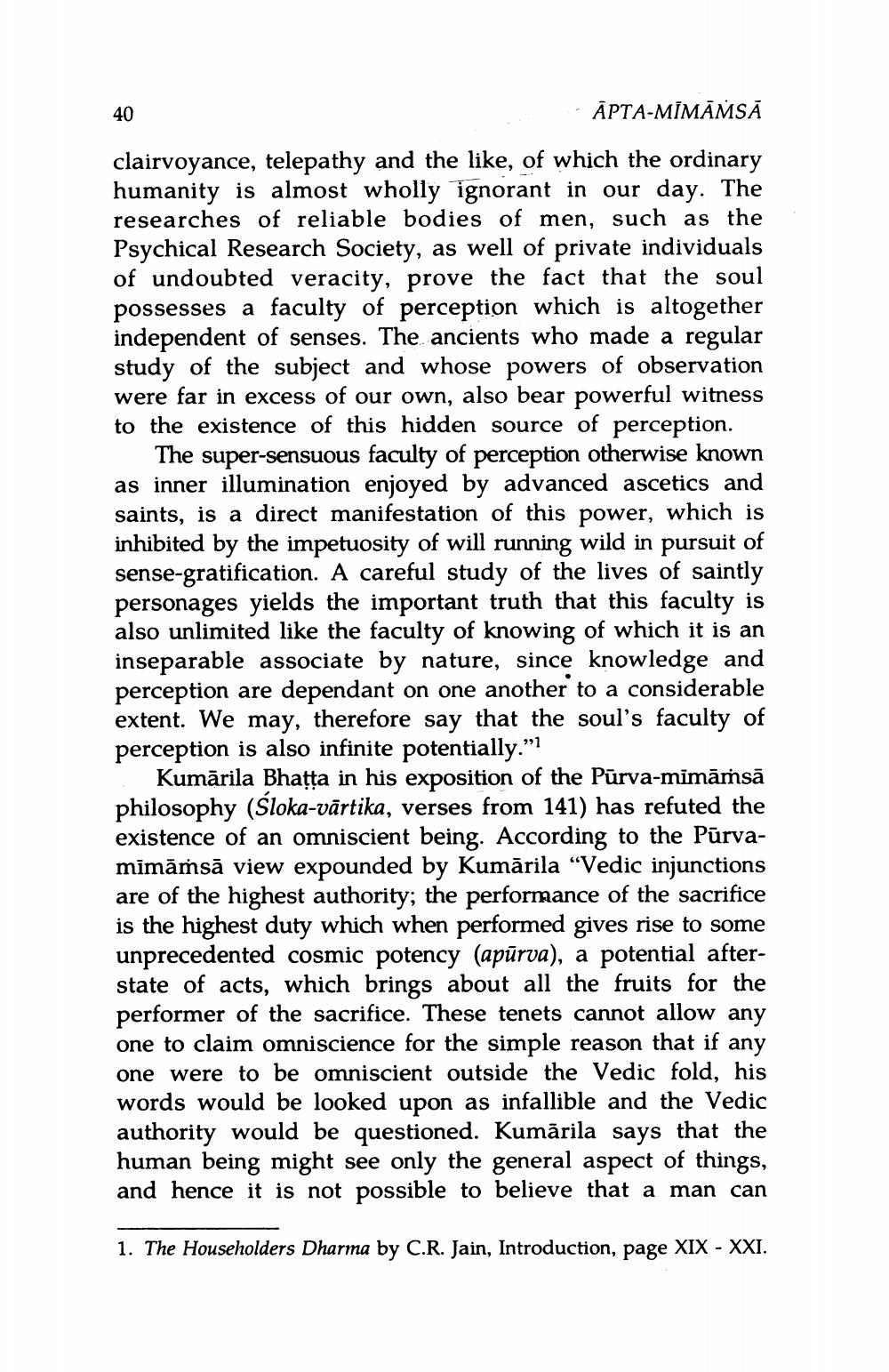________________
40
- ĀPTA-MĪMĀMSĀ
clairvoyance, telepathy and the like, of which the ordinary humanity is almost wholly ignorant in our day. The researches of reliable bodies of men, such as the Psychical Research Society, as well of private individuals of undoubted veracity, prove the fact that the soul possesses a faculty of perception which is altogether independent of senses. The ancients who made a regular study of the subject and whose powers of observation were far in excess of our own, also bear powerful witness to the existence of this hidden source of perception.
The super-sensuous faculty of perception otherwise known as inner illumination enjoyed by advanced ascetics and saints, is a direct manifestation of this power, which is inhibited by the impetuosity of will running wild in pursuit of sense-gratification. A careful study of the lives of saintly personages yields the important truth that this faculty is also unlimited like the faculty of knowing of which it is an inseparable associate by nature, since knowledge and perception are dependant on one another to a considerable extent. We may, therefore say that the soul's faculty of perception is also infinite potentially.”
Kumārila Bhatta in his exposition of the Pūrva-mimāṁsā philosophy (Sloka-vārtika, verses from 141) has refuted the existence of an omniscient being. According to the Pūrvamīmāṁsā view expounded by Kumārila “Vedic injunctions are of the highest authority; the performance of the sacrifice is the highest duty which when performed gives rise to some unprecedented cosmic potency (apūrva), a potential afterstate of acts, which brings about all the fruits for the performer of the sacrifice. These tenets cannot allow any one to claim omniscience for the simple reason that if any one were to be omniscient outside the Vedic fold, his words would be looked upon as infallible and the Vedic authority would be questioned. Kumārila says that the human being might see only the general aspect of things, and hence it is not possible to believe that a man can
1. The Householders Dharma by C.R. Jain, Introduction, page XIX - XXI.




